Lesson 51 - Shopping
As you know, the verb "to buy" is kaimasu. Similarly, the word for "shopping" is kaimono. Shops in Japan are usually open six days a week, including Saturday and Sunday, and are closed on one weekday. Most shops in the same area sell similar items, and even close on the same days. Depaato (department stores) are very popular, and Japan has some of the world's largest. Twice a year these department stores have a Baagan seeru or a bargain sale. Shop clerks (called either mise no hito or ten'in) are very polite, too, and greet every okyakusan (customer) with Irasshaimase (Welcome) and say Maido arigatou gozaimashita (Thanks for shopping here) to every one that leaves. Vending machines are also widely popular, and you can find a different assortment of goods in them, including things like batteries, books, shampoo, toys, and even rice.
The Japanese currency is en, or we like to say yen. Depending on how the economy is, 100 yen is a little less than the American dollar and like 70 eurocents. Coins come in 500, 100, 50, 10, 5, and 1 yen. Bank nots, or satsu, come in 10,000, 5,000, and 1,000 yen. The most useful coin is usually the 100 yen coin, because it is most useful for pay phones and vending machines. Most vending machines will give you change for bank notes, though. Change is called otsuri.
The Japanese have a different counting system. You already know how to count up to 100. But as we would write a number like 71,296,531 in groups of three, they would write it as 7129,6531, in groups of four. However, this only occurs now these days in Chinese numerals (一, 二, 三). The Hindu-Arabic numerals (1, 2, 3) are more often used in horizontal writing, and the Chinese numerals are more common in vertical writing.
Examples: (spacing by groups of four digits is given only for clarity of explanation)
- 1 0000 : 一万 (ichi-man)
- 983 6703 : 九百八十三万 六千七百三 (kyū-hyaku hachi-jū san man, roku-sen nana-hyaku san)
- 20 3652 1801 : 二十億 三千六百五十二万 千八百一 (ni-jū oku, san-zen rop-pyaku go-jū ni-man, sen hap-pyaku ichi)
However, numbers written in Hindu-Arabic numerals are separated by commas every three digits following English-speaking convention. If Hindu-Arabic numbers and kanji are used in combination, Western orders of magnitude may be used for numbers smaller than 10,000 (e.g. 2,500万 for 25,000,000).
Let's have a quick rundown of numbers over 100:
百 Hyaku- 100
二百 Nihyaku- 200
三百 Sanbyaku- 300
四百 Yonhyaku- 400
五百 Gohyaku- 500
六百 Roppyaku- 600
七百 Nanahyaku- 700
八百 Happyaku- 800
九百 Kyuuhyaku- 900
千 Sen- 1,000
二千 Nisen- 2,000
三千 Sanzen- 3,000
四千 Yonsen- 4,000
五千 Gosen- 5,000
六千 Rokusen- 6,000
七千 Nanasen- 7,000
八千 Hassen- 8,000
休戦 Kyuusen- 9,000
万/一万 Man/ichiman- 10,000
Now that we know that, let's take a look at the number 71296531. We would say it "seventy one million, two hundred ninety six thousand, five hundred thirty one". In Japanese, you would say nanasen hyaku nijuu kyuuman, rokusen gohyaku sanjuu ichi. That may seem confusing at first, but after a while, you will get used to it.
Let's jump into a conversation between Kyohei, the customer, and Yuu, the shopkeeper.
Yuu: Irasshaimase!
Kyohei: Konnichi wa. Tokei ga arimasu ka.
Yuu: Hai! Tokei wa koko desu.
Kyohei: Sore o misete kudasai.
Yuu: Hai! Douzo.
Kyohei: Eto . . . ikura desu ka.
Yuu: Ichiman en desu.
Kyohei: Ichiman en? Takai desu.
Yuu: Demo, kyou wa BAAGEN SEERU desu. Sore dewa, ikura wa ima yonsen roppyaku yonjuu en desu.
Kyohei: Kore wa yasui desu ne. Watashi wa gosen en ga arimasu. Douzo.
Yuu: Arigatou gozaimasu! Otsuri wa sanbyaku rokujuu en desu. Douzo.
Kyohei: Arigatou gozaimasu.
Yuu: Maido arigatou gozaimashita!
Kyohei: Sayonara.
First, Yuu says "Welcome" to Kyohei and Kyohei asks if they have a tokei, or a watch. Yuu replies that they do and says "The watch is here". Kyohei says, "Please show that to me." Yuu shows it to him and Kyohei asks Ikura desu ka or "How much is it?" Yuu replies it is 10000 yen. Kyohei remarks that it is takai, or expensive. Yuu says, "But, today is a bargain sale. So, now the price is 4640 yen." Kyohei says that is yasui, or cheap. He says he has 5000 yen and gives it to him. Yuu gives him back his change, which is 360 yen. Kyohei says thank you, Yuu thanks him for shopping there, and Kyohei leaves.
Vocabulary Review
買いもの Kaimono- shopping
デパート DEPAATO- department store
バーゲンセール BAAGEN SEERU- bargain sale
店の人/店員 Mise no hito/ten'in- shop clerk
お客さん Okyakusan- customer
いらっしゃいませ Irasshaimase- welcome
毎度ありがとうございました Maido arigatou gozaimashita- Thanks for shopping here
円 En- yen
札 Satsu- bank notes
お釣 Otsuri- change
百 Hyaku- 100
二百 Nihyaku- 200
三百 Sanbyaku- 300
四百 Yonhyaku- 400
五百 Gohyaku- 500
六百 Roppyaku- 600
七百 Nanahyaku- 700
八百 Happyaku- 800
九百 Kyuuhyaku- 900
千 Sen- 1,000
二千 Nisen- 2,000
三千 Sanzen- 3,000
四千 Yonsen- 4,000
五千 Gosen- 5,000
六千 Rokusen- 6,000
七千 Nanasen- 7,000
八千 Hassen- 8,000
休戦 Kyuusen- 9,000
万/一万 Man/ichiman- 10,000
時計 Tokei- watch/clock
いくら Ikura- cost/price
高い Takai- expensive
安い Yasui- cheap
